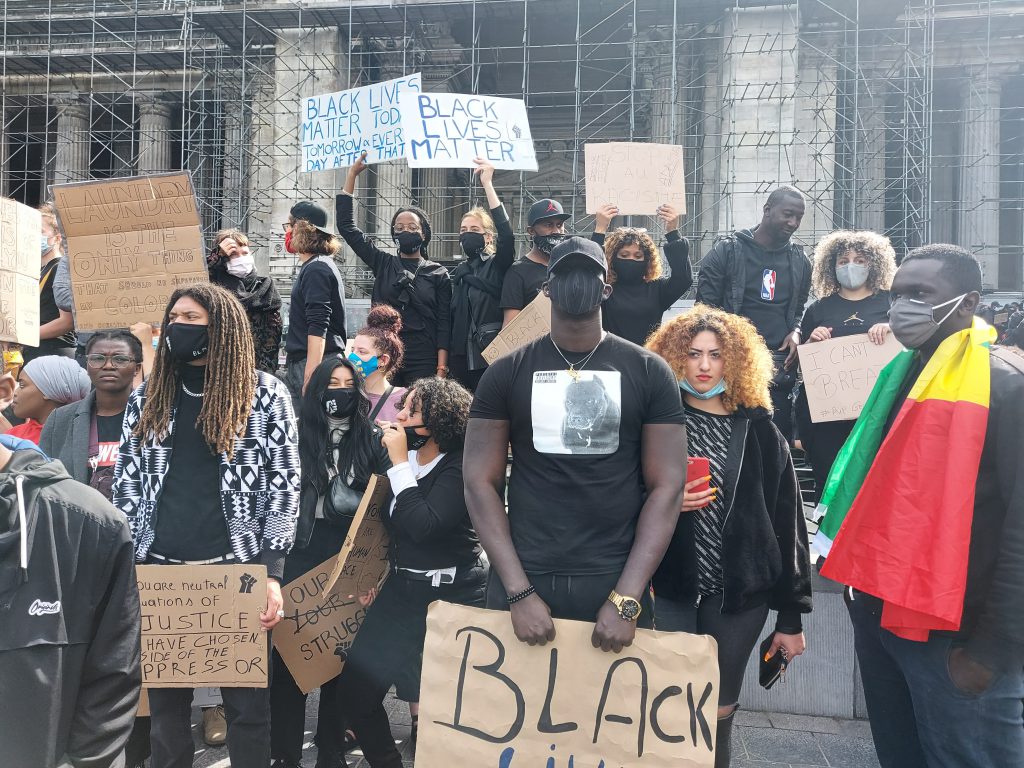The murder of George Floyd in Minneapolis has sparked a wave of outrage and anger, including in European countries among those most affected by the wave of COVID-19. In France, Spain, Italy, Belgium, the United Kingdom, Denmark and elsewhere, tens of thousands of citizens shout out their legitimate demand to fight against police violence, institutionalised racism and facial discrimination. Although the situation is not comparable to the United States, whose history of slavery has left its mark on minds and practices, the fact that many European countries have an unexamined colonial history is fueling outrage. Protests following similar incidents in Europe had already taken place during and just after the lockdown, such as in Belgium and France.
These demonstrations have triggered heated debates on the right to protest for a just cause versus the duty to follow health guidelines. Although the mask was worn by many protesters, politicians stated that these anti-racist demonstrations should have been banned rather than tolerated. This controversy is highly political, as some virologists believe that the demonstrations should have little or no impact on the pandemic. Emmanuel André, who at the time was responsible for tracing the virus in Belgium, tweeted: “If racism did not exist, 10,000 people in Brussels should not have had to remind that we are all equal”.
Article 11 of the European Convention on Human Rights provides that freedom of peaceful assembly may be restricted for protecting health. However, at a time when most countries are “unlocking” numerous sectors, how long can such narrative last? Even if the pandemic continues its course, with muted steps, would it not be time to allow freedom of expression and protest to resurface by relaxing certain health constraints? If this were not the case, at a time when restaurants, swimming pools and cinemas are reopening, citizens will then be able to legitimately claim that the COVID-19 crisis has contributed to muzzling their fundamental freedoms.
The question of balancing freedom of expression with public health also arises in the southern Mediterranean, such as in Algeria where the Hirak movement has been quarantined, in Egypt where the regime wants to silence any protest, or in Israel/Palestine where Palestinians are discriminated against as never before. Yet, it is in the United States that the main stakes remain, especially if the irascible and unpredictable Donald Trump is re-elected in November, which would inflate the sails of populists of all stripes, including in the Euro-Mediterranean region.

